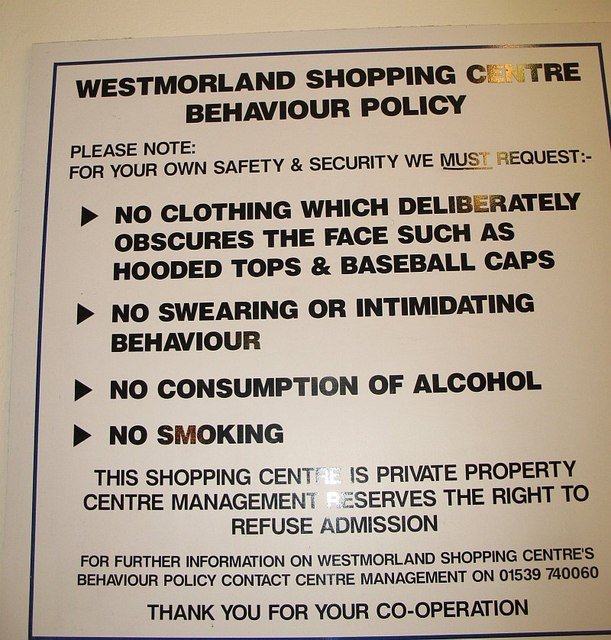Italy’s Prohibition on Laughter in Public

In the bustling city of Milan, Italy, an ancient law still lingers on the books: the prohibition of loud laughter in public spaces. While it sounds like a plot twist in a quirky comedy, this rule was originally introduced to maintain public decorum and peace in crowded city environments. Despite its age, city officials haven’t formally repealed it, and technically, violators can still face fines, even though actual enforcement is extremely rare. Many Milanese locals find the law hilarious and use it as a running joke, but it’s a reminder of the city’s historic concern for order and respect. In a nation famous for expressive conversations and lively piazzas, the law often feels out of place and even a bit ironic. According to cultural commentators in 2024, the law’s existence continues to spark debate about balancing public order with personal freedoms. As one local joked recently, “Here, laughter might not be the best medicine—it could be an expensive one!”
Singapore’s Chewing Gum Ban

Singapore’s chewing gum ban is legendary, often cited as the ultimate example of the city-state’s no-nonsense approach to cleanliness. The law was enacted in 1992 after years of complaints about discarded gum gumming up public spaces and train doors. While the ban might seem extreme, city officials point to a dramatic reduction in public litter and infrastructure damage since its implementation. Only medically-approved chewing gums, such as those used for nicotine replacement therapy, are allowed, and they can only be purchased at pharmacies with identification. Violators risk fines that can reach up to SGD 1,000 for first-time offenders—no small sum for a simple stick of gum. Government spokespeople have reiterated in recent news interviews that the law is a cornerstone of Singapore’s “clean and green” image. Interestingly, surveys in 2024 show that most locals have accepted the rule, while visitors often find it surprising and even a bit intimidating.
Switzerland’s Quiet Hours

Switzerland’s devotion to peace and quiet is not just a cultural trait—it’s the law. Across the country, noise restrictions are strictly enforced during designated quiet hours, typically from 10 PM to 7 AM. Even everyday activities like vacuuming, playing music, or running the dishwasher can trigger complaints if done during these hours. Neighborhood disputes over noise are not uncommon, and local authorities are known to respond quickly, sometimes issuing fines to persistent offenders. In a recent survey, more than 70% of Swiss residents said they supported the law, citing improved sleep and a better quality of life. This regulation is a reflection of Swiss values—respect for one’s neighbors and a belief in communal harmony. While newcomers may find the rule rigid, locals often describe it as essential to maintaining their cherished sense of order. As one Zurich resident remarked this year, “Peace isn’t just an idea here—it’s protected by law.”
Japan’s Ban on Dancing After Midnight

Japan’s nightlife has long been shaped by a curious law: for decades, dancing in clubs and bars after midnight was forbidden under the country’s Anti-Prostitution Law. The regulation, introduced in 1948, was originally meant to combat illicit activities but persisted long after social norms changed. Although a revision in 2015 allowed licensed venues to stay open until 5 AM, many establishments still struggle with complex licensing rules and lingering stigma. Critics argue that the law stifles creativity and cultural expression, especially among younger generations hungry for vibrant nightlife. Recent commentary in Japanese media points out that the law is now mostly symbolic but still causes headaches for club owners. Some venues have even faced police raids in recent years, despite the relaxation of restrictions. As Tokyo clubgoers noted in a 2024 interview, “We want to dance, not break the law—but sometimes it feels like we have to choose.”
France’s Law Against Unattended Baguettes

France’s passion for bread is legendary, but few people realize it’s also protected by law. In some towns, it’s technically illegal to leave a baguette unattended in public spaces, a quirky rule that underscores the deep cultural reverence for this simple staple. The law, rooted in a desire to prevent theft and waste, is rarely enforced but remains on the books as a symbol of French culinary pride. Local authorities occasionally remind residents to treat baguettes with respect, and stories of fines—though rare—circulate as urban legends. In 2024, a Parisian baker joked in a news segment, “In France, bread is sacred. Leave it alone, and the law might come after you!” The rule highlights how food can become so intertwined with national identity that it finds its way into legal statutes. Even as modern France evolves, the baguette remains, quite literally, a matter of public order.
Australia’s No Public Nudity in Certain Areas

Australia is famous for its sun-kissed beaches, but don’t let that fool you—public nudity is heavily regulated and only allowed in specific locations. Laws vary by state, with some regions designating certain beaches as clothing-optional, while others enforce strict penalties for public indecency. Recent police reports show that fines for violating nudity laws can reach into the thousands of dollars, and repeat offenders may even face court appearances. The patchwork nature of these regulations often confuses visitors, leading to accidental run-ins with the law. In major cities like Sydney, local councils debate the rules almost every year, reflecting shifting attitudes about body image and personal freedom. According to a 2024 survey, public opinion is divided, with some seeing the laws as outdated and others viewing them as essential for community standards. For now, Australians must navigate these rules carefully—sunbathing au naturel could be a costly mistake if you’re not in the right spot.
Canada’s Law Against Swearing in Public

In many parts of Canada, letting loose with a string of profanity in public can land you in hot water. Numerous municipalities have by-laws on the books prohibiting swearing or using “indecent language” in public spaces. While enforcement varies, recent cases in cities like Toronto and Calgary saw individuals fined for using offensive words in parks or on public transit. Supporters of these laws argue they help maintain a respectful environment, especially around families and children. Critics, however, believe the rules are outdated and infringe on freedom of expression, especially since enforcement can be inconsistent. A 2024 poll found that nearly half of Canadians support some regulation of public language, but most feel current laws go too far. As one legal expert commented this spring, “It’s a question of where to draw the line between decency and free speech—something Canadians are still debating.”
Denmark’s Requirement for Naming Children

Denmark takes naming children seriously—so seriously, in fact, that parents must choose from a government-approved list of around 18,000 names. The rule is designed to protect children from names that might subject them to ridicule or negative attention, as well as to preserve Danish culture. Parents who wish to use a name not on the list must apply for special permission, providing justification and waiting weeks or even months for a decision. The process can be frustrating for families, especially those with multicultural backgrounds or creative tastes. In 2024, Danish authorities reported that about 15% of parents request exemptions each year, with only a portion approved. Supporters say the law helps ensure children grow up with names that fit into society, while critics argue it stifles individuality. “It’s about balance,” one Copenhagen official said this year. “We want to protect tradition, but we also understand the world is changing.”
Thailand’s Ban on Wearing a Bikini in Public

Thailand’s approach to public attire is shaped by a deep respect for cultural values, leading to strict rules against wearing bikinis outside of designated beach areas. Tourists and locals alike can face fines if caught in swimwear in cities, parks, or temples—a fact that often surprises foreigners. In recent months, several high-profile cases involving social media influencers have reignited discussion about the law’s relevance in a modern, tourist-friendly Thailand. Supporters argue that the rule protects the country’s image and preserves local customs, especially in religious or family-oriented spaces. Meanwhile, critics warn that the law can create confusion for visitors and potentially harm tourism revenue. The Thai government regularly issues reminders to travelers, emphasizing the importance of respecting local norms. As one Bangkok tourism official remarked this year, “Our traditions are not just for show—they’re a vital part of who we are.”
The Netherlands’ Prohibition on Cannabis Sales to Tourists

The Netherlands is world-famous for its cannabis cafes, but not everyone is welcome to partake. In several cities, including Maastricht and others near the borders, a law prohibits the sale of cannabis to non-residents in an effort to curb drug tourism and related crime. Local residents can still purchase cannabis from licensed “coffeeshops,” but tourists are routinely turned away—a stark shift from the country’s once-open policy. Recent data shows a decrease in petty crime in these areas, but the law remains controversial, with some business owners arguing it hurts tourism revenue. Confusion is common, as rules vary by city, and enforcement has increased in 2024 amid ongoing debates over the future of cannabis laws. Many visitors express frustration when discovering the restriction after arriving. As one Dutch cafe owner put it, “We want to welcome everyone, but sometimes the law says otherwise.”






